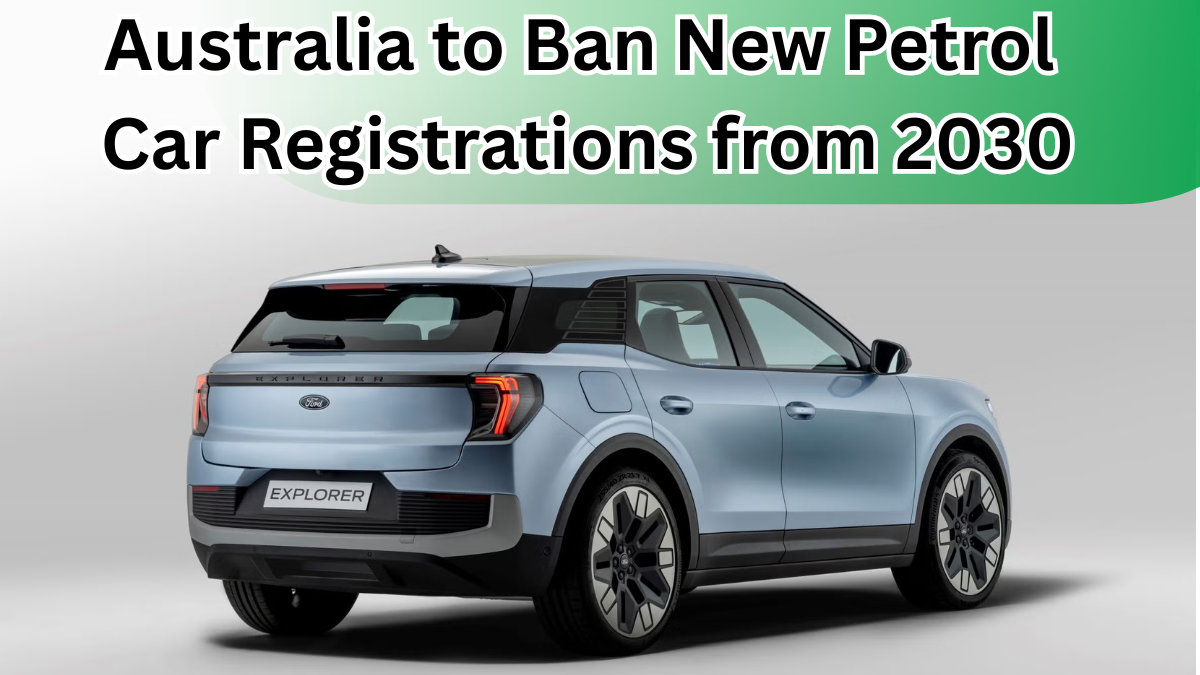Australia is steering towards a greener future with a bold new policy that will ban new petrol car registrations from 2030. This move is a critical step in the country’s journey towards cleaner transport and reduced carbon emissions. If you’re wondering how this petrol car ban Australia will impact drivers, the environment, and the automotive industry, we’ve got you covered.

Why Is Australia Banning New Petrol Cars?
The decision to ban new petrol cars comes amid growing global efforts to fight climate change. Australia’s government aims to accelerate the EV transition to meet stricter emission laws and promote sustainable mobility.
Key reasons for the ban:
-
Reduce greenhouse gas emissions to meet climate targets.
-
Encourage adoption of electric vehicles (EVs) and hybrid models.
-
Align with global trends and improve air quality.
-
Drive innovation in clean technology and renewable energy.
What Does the Petrol Car Ban Mean for You?
Starting in 2030, Australians won’t be able to register new petrol-powered vehicles. However, this doesn’t mean you need to rush to sell your current petrol car. Existing petrol cars will still be allowed on the road and can be resold or used indefinitely.
What to expect:
| Aspect | Before 2030 | After 2030 |
|---|---|---|
| New petrol car sales | Allowed | Banned |
| Existing petrol cars | Can be driven and resold | Still allowed |
| New EV registrations | Increasing, supported by incentives | Fully allowed and promoted |
| Government support | Grants and rebates for EV buyers | Continued focus on EV infrastructure |
How Will This Affect Australia’s EV Transition?
This policy is a major push towards a widespread EV transition in Australia, encouraging more people to consider electric cars. Car manufacturers will also shift focus to EV models, aligning their production with car policy Australia is embracing.
Benefits of the EV transition:
-
Lower fuel and maintenance costs.
-
Reduced noise and air pollution.
-
Contribution to Australia’s climate goals.
-
Growing network of EV charging stations nationwide.
What You Should Know About New Emission Laws
The petrol car ban in Australia is part of broader emission laws targeting all sectors. These laws aim to significantly cut down Australia’s carbon footprint by:
-
Setting stricter emission standards for all vehicles.
-
Promoting renewable energy use in transportation.
-
Encouraging innovation in green technologies.
FAQs
1. Will I still be able to drive my petrol car after 2030?
Yes, existing petrol cars can still be driven and resold. The ban only applies to new registrations.
2. Are there incentives for switching to electric vehicles in Australia?
Yes, the government offers rebates, tax benefits, and investments in EV infrastructure to support the transition.
3. How will this petrol car ban impact car prices?
Petrol car prices may remain stable or increase for used cars, while electric vehicles might become more affordable due to increased production and incentives.
4. What happens if I want a hybrid vehicle after 2030?
Hybrid vehicles may still be available depending on specific regulations, but the focus will be strongly on zero-emission vehicles like fully electric cars.
Australia’s move to ban new petrol car registrations by 2030 is a landmark step in its climate journey. This petrol car ban Australia signals a future where clean energy drives mobility — making roads quieter, air cleaner, and the planet healthier. The car policy Australia adopts now is more than just rules; it’s a roadmap to a sustainable tomorrow.
Click here to learn more
Pari is a passionate writer known for captivating stories that blend imagination and reality. Inspired by travel, history, and everyday moments, Pari crafts narratives that resonate deeply with readers.